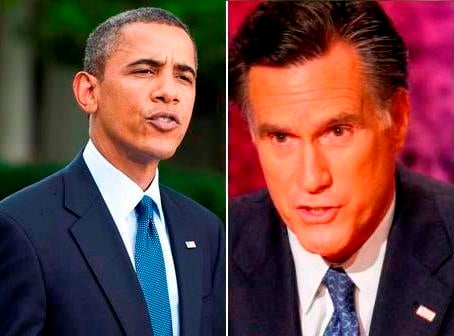Investment advisers will be among the tens of millions of Americans who tune into the first presidential debate on Wednesday night. If Financial Planning Association President Paul Auslander has his way, they'll consider being on a similar stage themselves one day -- as a candidate for state or federal office.
“It's time that CFPs [certified financial planners] recognize that they have an ability to add a voice in both state legislatures and Congress that hasn't been seen before and that is dominated by people who generally don't have financial training,” Mr. Auslander told reporters earlier this week at
FPA's annual conference in San Antonio.
Adding more investment advisers to a Congress that is replete with lawyers could help the country avoid some of the problems that have bogged down Washington recently, according to Mr. Auslander.
“There would be a lot less threat of fiscal cliffs, if you had financial planners active in these budget discussions,” said Mr. Auslander, chairman and chief executive of American Financial Advisors Inc. in Orlando.
He intends to lead by example when it comes to public service. Mr. Auslander hinted during his opening remarks at the conference that he is seriously considering running for office in Florida in the near future.
“I'm fully prepared to put my money and self where my mouth is because I think you have to be able to do that , if you're asking your colleagues and [FPA] members to belly up to the bar,” Mr. Auslander told reporters.
Financial planners attending the FPA Experience 2012 convention were happy to hear that Mr. Auslander might throw his hat into the ring. But they're hesitant to join him in the political arena.
“So many planners enjoy doing what they do, it would be difficult for them to give up their practice to be a politician,” said Suzanne Himes, an investment adviser at Asset Planning Corp. in Knoxville, Tenn. “Maybe lawyers don't like what they do as much.”
Paul Stage, president of Stage Agency Inc. in Jamestown, N.Y., said that he's considered running for office but has stopped short of filing his candidacy.
“I don't think I have the stomach for it,” Mr. Stage said. “I'm probably too opinionated. I don't know that I would make a good politician.”
A political campaign at any level can be grueling and more likely than not end in failure, a reality that discourages investment advisers.
“I don't think I would get elected, therefore, I don't want to expend the energy,” said Philip Huffman, first vice president of investments at Wells Fargo Advisors LLC in Gulfport, Miss.
Another drawback to running for office is that by making his or her political preference clear, an adviser could alienate clients.
“We strive to create a safe environment for our clients where it doesn't matter what political views or religious views you have,” Ms. Himes said. “If we were to run for office – particularly aligning with a party – that would be contrary to the neutral, safe environment.”
Mr. Auslander said that such worries are overblown. Advisers tend to attract clients whose political outlook is similar to theirs. For instance, a conservative Republican probably wouldn't have many trial-lawyer clients.
“Clients, interestingly enough, follow the personality or profile of their adviser,” Mr. Auslander said. “They gravitate toward people they understand and like.”
The taboo on discussing politics must be broken, according to Mr. Auslander. The topic shouldn't be lumped together with sex and religion.
“The other two don't need to be talked about,” Mr. Auslander said. “But [politics] needs to be talked about because it changes the way people live.”







